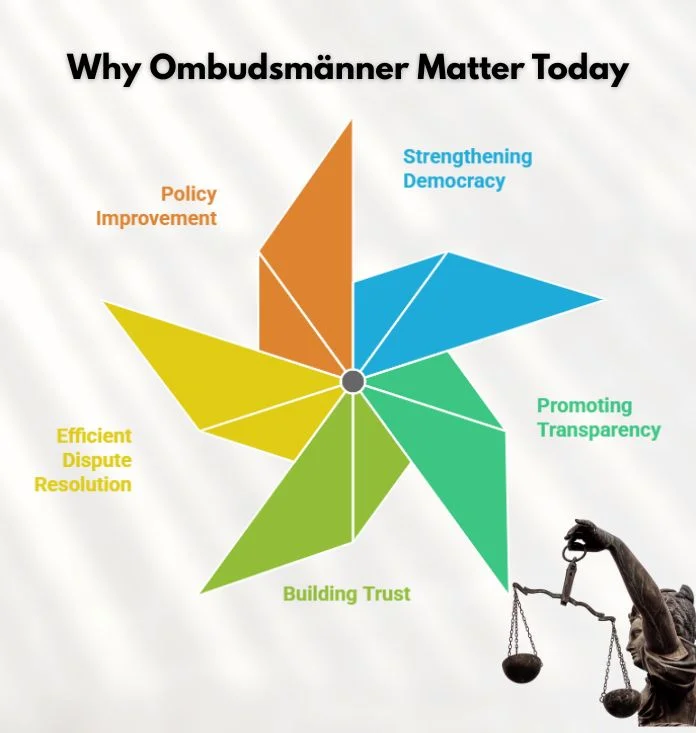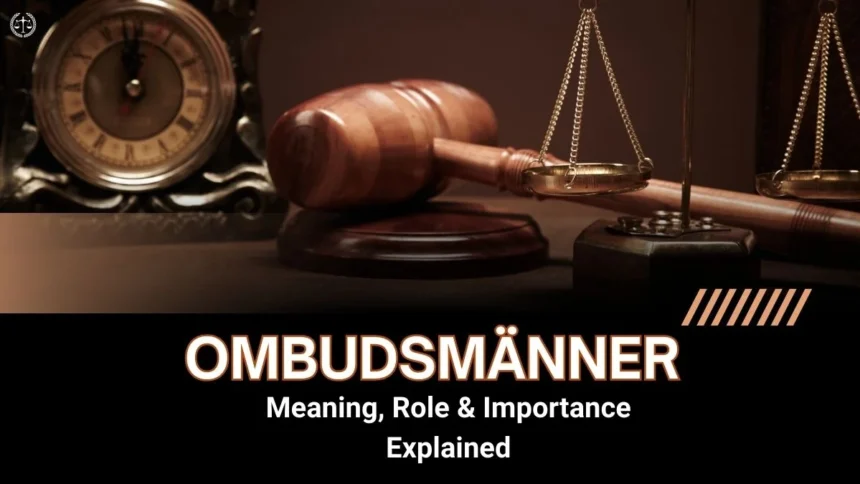In a world where trust in institutions is constantly challenged, the need for independent oversight has never been greater. This is where the concept of Ombudsmänner becomes essential. Rooted in fairness, impartiality, and accountability, Ombudsmänner act as bridges between individuals and powerful organizations. But what exactly does the term mean, and why is it so significant today?
What is Ombudsmänner?
Ombudsmänner is the German plural form of Ombudsmann, which translates to “ombudsmen” in English. An ombudsman is an independent official responsible for investigating complaints brought against public authorities, corporations, or institutions. Their mission is to ensure fairness, transparency, and accountability while providing an impartial platform for dispute resolution.
The word originates from Swedish, where ombudsman means “representative” or “agent.” Today, the role is recognized worldwide, adapting to different legal systems, corporate environments, and cultural contexts.
In German, alternatives also exist:
- Ombudsfrauen → Refers specifically to female ombudsmen.
- Ombudsleute → A gender-neutral plural form, commonly used in inclusive language.
Historical Origins of the Ombudsman
The first official ombudsman office was established in Sweden in 1809. Known as the Justitieombudsmannen, it was created to protect citizens from administrative abuse by monitoring government officials. This pioneering concept inspired other countries, including Germany, to adopt similar structures over time.
As democratic values spread, so did the ombudsman model. Today, it serves across multiple sectors—public, private, academic, financial, and even media-related institutions.
Duties and Responsibilities of Ombudsmänner
The work can be grouped into three main functions:
- Complaint Resolution: Handling and investigating grievances from individuals against institutions.
- Impartial Mediation: Acting as a neutral mediator to resolve disputes without legal confrontation.
- Institutional Oversight: Monitoring organizational practices to ensure transparency and accountability.
Unlike courts, Ombudsmänner provide a quicker, cost-effective, and less adversarial path to justice.
Types of Ombudsmänner
The role of ombudsmen has expanded into various sectors. The following table summarizes the main types of Ombudsmänner and their areas of responsibility:
| Type of Ombudsman | Main Area of Focus | Examples |
| Government Ombudsman | Ensures accountability of state institutions | Administrative complaints, citizen rights |
| Corporate Ombudsman | Mediates within companies | Employee grievances, consumer complaints |
| University Ombudsman | Protects fairness in education | Academic disputes, harassment cases |
| Financial Ombudsman | Oversees financial institutions | Banking issues, insurance claims |
| Media Ombudsman | Monitors journalism ethics | Editorial fairness, press freedom |
This variety shows how adaptable the concept of Ombudsmänner has become, serving as a crucial safeguard across different sectors of society.
Gendered and Neutral Alternatives in German
Language reflects social values, and the discussion around inclusivity extends to the term Ombudsmänner. While it traditionally refers to male plural forms, two alternatives have emerged:
- Ombudsfrauen: Used when specifically addressing female ombudsmen.
- Ombudsleute: A gender-neutral and inclusive term, increasingly preferred in modern contexts.
Many organizations adopt Ombudsleute to reflect equality, inclusivity, and modern linguistic norms.
Why Ombudsmänner Matter Today
The importance of it lies in its ability to balance power between institutions and individuals. Their impact can be seen in several key areas:
- Strengthening Democracy: Ensuring that governments remain accountable to citizens.
- Promoting Transparency: Publishing reports and recommendations that make processes visible.
- Building Trust: Encouraging public confidence in institutions.
- Efficient Dispute Resolution: Offering alternatives to expensive and time-consuming litigation.
- Policy Improvement: Identifying systemic flaws and proposing reforms.

Global Recognition of Ombudsmänner
Today, ombudsman institutions exist in over 100 countries. The International Ombudsman Institute (IOI) serves as a global network, promoting collaboration and best practices.
In Germany, it operates in parliamentary systems, consumer rights organizations, financial services, and corporate settings. Their presence highlights a commitment to fairness and good governance.
Challenges Faced by Ombudsmänner
Despite their importance, Ombudsmänner encounter challenges that can limit their effectiveness:
- Limited Authority: Their recommendations are not always legally binding.
- Resource Shortages: Lack of funding or staff can slow investigations.
- Low Public Awareness: Many citizens remain unaware of how to access ombudsman services.
- Institutional Resistance: Some organizations resist oversight or delay cooperation.
Addressing these issues is essential for Ombudsmänner to continue fulfilling their mission.
The Future of Ombudsmänner in a Digital Era
As society transitions into a digital-first world, the ombudsman role must adapt. Digital grievances such as data protection, cybersecurity breaches, and online consumer rights are now within their scope.
Emerging solutions include:
- Online Complaint Platforms for faster accessibility.
- AI-driven Case Management Systems to streamline investigations.
- Digital Rights Ombudsmen focusing on internet governance and data privacy.
In addition, rising expectations for corporate social responsibility (CSR) and ethical business conduct make Ombudsmänner indispensable in both public and private institutions.
Conclusion
The term Ombudsmänner may seem like a simple linguistic plural of Ombudsmann, but it carries profound significance. It represents a centuries-old institution that protects fairness, strengthens accountability, and builds trust between individuals and organizations.
Whether in government, business, education, finance, or media, Ombudsmänner serve as neutral mediators and guardians of justice. And as language evolves, inclusive alternatives like Ombudsleute ensure that the role remains relevant in modern society.






